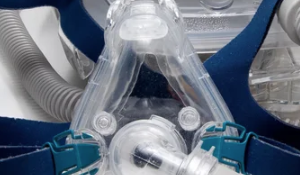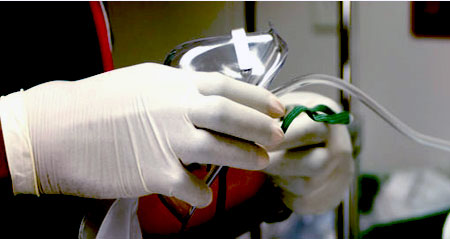HQAA’s Equipment List is the vehicle organizations use to disclose what products and supplies they provide to their customers. It looks a lot like a Medicare form (the 855-S), which serves a similar role for companies providing care to Medicare recipients and it's very important that the information on the 855-S matches up with HQAA’s equipment list. The list is three pages long, and broken up into categories. One of the categories is respiratory equipment, which includes oxygen, ventilators, and CPAP, along with some other less common therapy modalities that utilize pressure to treat various respiratory disorders.
HQAA Blog
Under Pressure: PAP, IPPB, and Other Therapies
Topics: Clinical Respiratory Services, Oxygen, DMEPOS
You could write a book about “employee vs. contractor” pros, cons, legality, and operational efficiency. In fact, there are books written about that very subject. There are also lawyers who specialize in employment law who advise companies about how to structure their staffing around those two broad categories of staff. While accreditation organizations won’t delve into the legalities (that’s for the lawyers to do), accreditation standards DO in fact address both categories of staffing.
Topics: Employee Training, Personnel Files, HQAA Accreditation, Clinical Practice Guidelines, Quality Care, Retail, Delivery, Clinical Respiratory Services, Competence, Customer Service, Business Practices, Surveys, Equipment
Imagine how hard it would be to adequately assess whether a person could do some specific task (such as teach school, perform surgery, re-wire a house’s electrical system, or build a bridge) without actually observing them doing that task. We hire employees based on applications and resumes, we evaluate their performance in a job by checking their attendance record to insure they show up to work on time, and we monitor a delivery person’s driver’s license or a clinician’s clinical license to make sure they haven’t expired or been revoked. But no tool works as well to assess a person’s ability to do their job as well as actually watching them do their job. Competency assessments are an integral part of the evaluative process and some would say, THE most important part of that process. If you are hiring a marksman for their ability to hit a target, at some point, you’re going to go out into the field and say “Show me what you’ve got!”
Topics: Employee Training, Renewing Accreditation, HQAA Accreditation, Avoiding Deficiencies, Delivery, Clinical Respiratory Services, Competence, DMEPOS
Many in the home medical equipment industry equate policy manuals to their accreditation inspections. And of course, these bulky tomes are certainly a large part of the accreditation and survey experience for every DME. Policy manuals serve as the road map for how work gets done within an organization, a set of rules for the organization, and the document that defines the structure, function, and philosophy of the organization. Let’s look at what a policy manual should contain and how it impacts not only accreditation, but also the overall day-to-day operation of an organization.
Topics: Employee Training, HIPAA, Security, Personnel Files, Quality Improvement, Billing, Renewing Accreditation, Quality Standards, HQAA Accreditation, HME Accreditation Requirements, Patient File Requirements, Compliance, Patient Privacy, Clinical Practice Guidelines, Materials Management, Avoiding Deficiencies, CMS, Complaint Process, Quality Care, Showroom, Retail, Delivery, Clinical Respiratory Services, Oxygen, Warehouse, Safety Officer, Competence, Customer Service, Disaster Preparedness, Emergencies, Business Practices, Marketing
Using Clinical Respiratory Services to Enhance Your Business
Clinical respiratory services (CRS) are hands on care, assessment, or treatment, governed by state regulations including Respiratory Practice Acts and Licensure Laws. It is usually physician-prescribed in conjunction with medical equipment services. Most of the DME organizations that provide CRS do not get paid for the services and do them as an adjunct to providing some kind of equipment services, such as an oxygen or ventilation program. Because of the limited opportunities for reimbursement for these services, organizations





